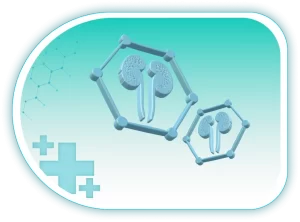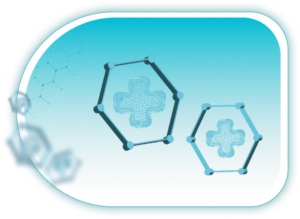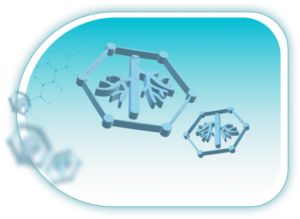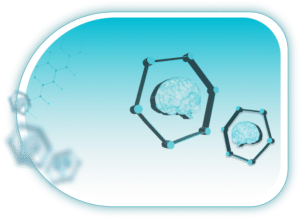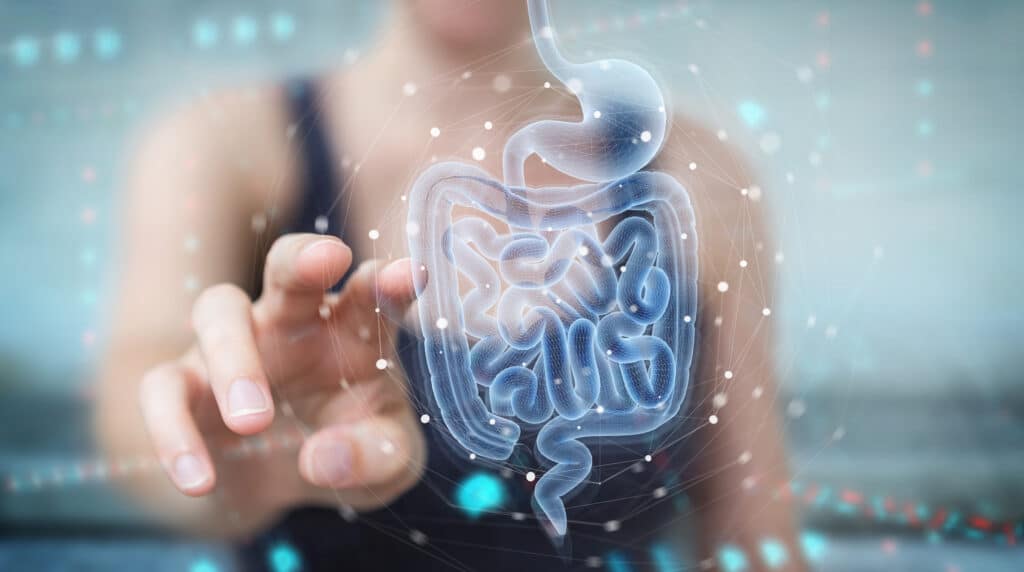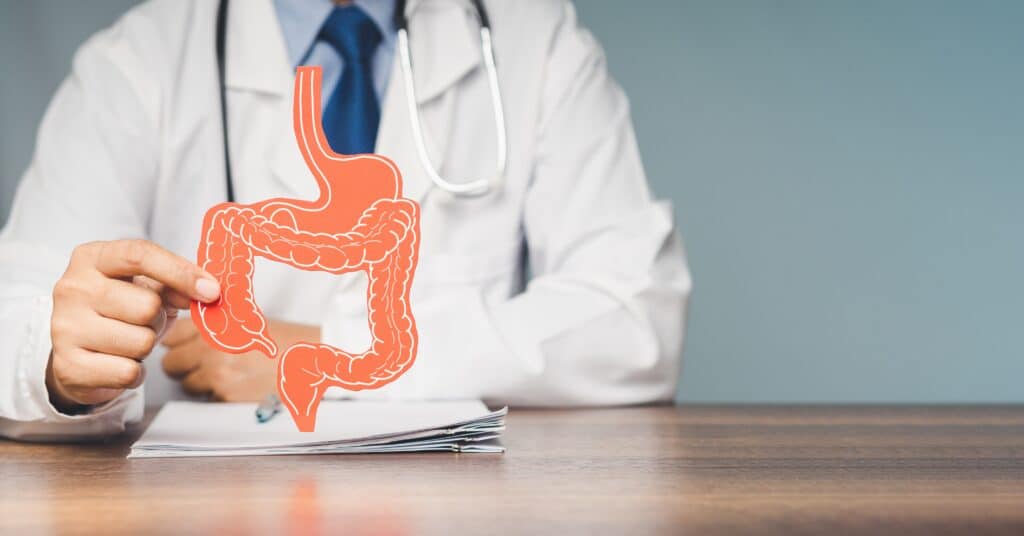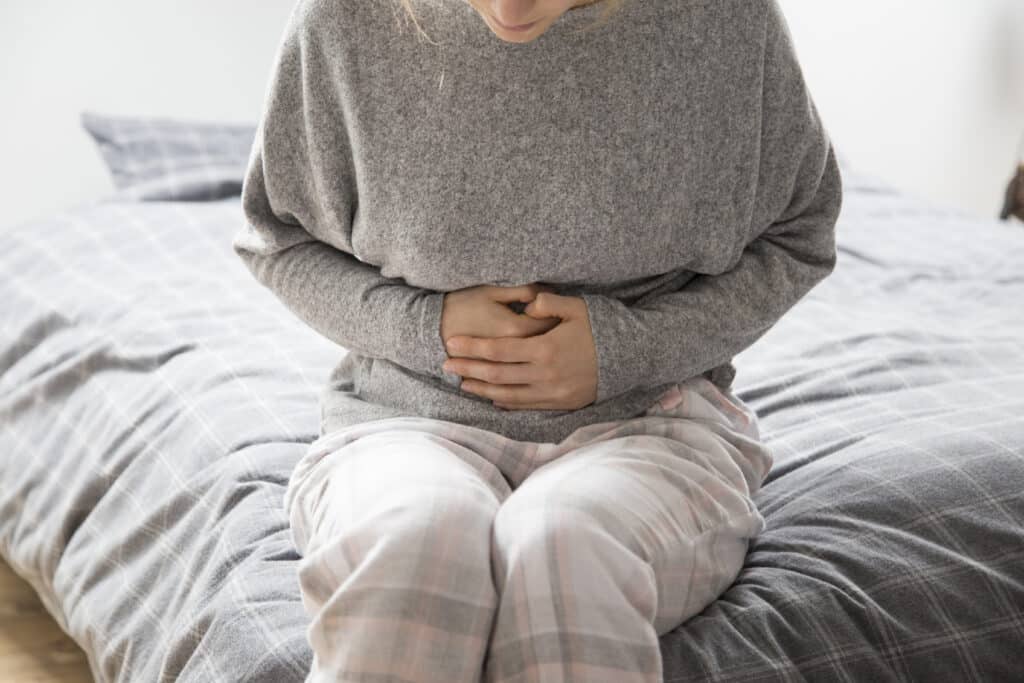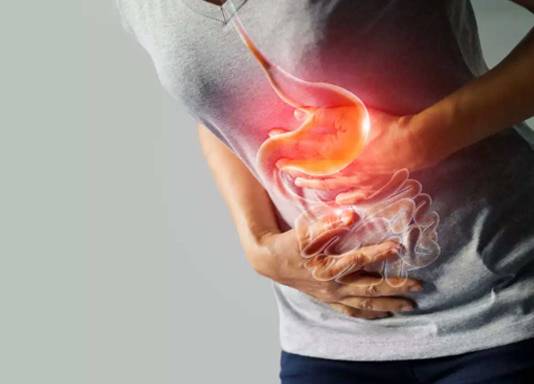This usually happens during childhood. Pylori infection, which more than half of the people in the world may have had, is a common cause of peptic ulcers, MALT lymphoma, and most importantly, gastric cancer. Most people are not aware that they have H.pylori infection; Because they never experience its symptoms. If you develop symptoms or signs of peptic ulcer disease, your doctor will likely perform a test to see if you have H.pylori infection. If you have H.pylori infection, it can be treated with antibiotics.
Risk factors
Infection with Helicobacter pylori is most often acquired during childhood. Risk factors for H.pylori infection are related to living conditions in your childhood, such as:
- Living in crowded places. You have an increased risk of contracting Helicobacter pylori if you live in a home with many other people.
- Living without a reliable source of clean water. A reliable supply of clean running water helps reduce the risk of infection with Helicobacter pylori.
- Live in a developing country. People who live in developing countries, where crowded and unsanitary living conditions may be more common, have an increased risk of contracting Helicobacter pylori.
- Living with someone who has H.pylori infection. If someone you live with has a H.pylori infection, it is likely that you also have this infection. In a developed country, most infection come from their parents.
Complications
Complications associated with Helicobacter pylori include:
- Helicobacter pylori can damage the protective lining of the stomach and small intestine. This can allow stomach acid to form an open ulcer (ulcer). About 10% of people infected with H. pylori develop an ulcer.
- Inflammation of the stomach lining. Infection with Helicobacter pylori can irritate the stomach, causing inflammation (gastritis).
- Stomach cancer. Helicobacter pylori infection is oncogenic and a definite risk factor for gastric cancer and gastric mucosa associated lymphoid tissue (MALT) lymphoma.
Protection
In areas of the world where gastric cancer is still prevalent such as Asia, South America, as well as Middle East, H.Pylori is shown to be the definite risk factor for the development of gastric cancer. In those areas, physicians sometimes test healthy people for H.pylori.
In Japan, a test called ABC classification, a combined assay for serum anti H.Pylori antibody and serum pepsinogen I/II ratio is widely used for the screening of high risk group for gastric cancer. Pepsinogen I/II ratio is shown to correlate with the severity of H.Pylori related gastritis. People who are classified other than group A which is both H.Pylori and pepsinogen negative, are recommended for further endoscopic examination.
If you are concerned about H.pylori infection or think you may be at a high risk of stomach cancer, talk to your doctor. Together, you can determine whether or not you will benefit from H.pylori testing.
The diagnosis
Tests and procedures used to determine whether you have Helicobacter pylori infection include:
- A blood test (for H.Pylori antibody). Analysis of a blood sample may reveal evidence of an active or previous infection with H.pylori in your body. This is the most convenient and cost-efficient test for detection of history of infection. However, it cannot be used for the diagnosis of eradication, since antibody can be detected years after its successful eradication. On the contrary, the following tests (urea breath test and stool antigen) can be used for the diagnosis of eradication, since they only detect live bacteria.
- Urea Breath test. During the breath test, you should swallow a tablet, liquid, or pudding that has urea particles in it. If you have H.pylori infection, carbon dioxide is released when H.Pylori breaks urea down into ammonia and carbon dioxide.
Your body absorbs the carbon dioxide and expels it as you exhale. You should use a bag to breathe in, and your doctor uses a special device to detect carbon dioxide.
Acid-suppressing drugs known as proton pump inhibitors (PPI), bismuth subsalicylate (pepto-bismol) and antibiotics can affect the accuracy of this test. Your doctor will ask you to stop taking these medications for a week or two before the test. This test is available for adults and children.
- Stool test. A lab test called a stool antigen test checks for foreign proteins (antigens) associated with H.pylori infection in stool. As with a breath test, proton pump inhibitor drugs and the bismuth subsalicylate effect on the results of this test; So your doctor will ask you to stop taking it for two weeks before the test.
- Scope Test. You will be sedated for this test, known as an upper endoscopy. During this test, your doctor passes a long, flexible tube with a small camera (endoscope) down your throat, down your esophagus, stomach and duodenum. This tool allows your doctor to view any disturbances in the upper digestive tract and collect tissue samples (biopsy).
These samples are analyzed to diagnose H.pylori infection. It is generally not recommended that this test be performed only to diagnose H.pylori infection because it is more invasive than the breath or stool test, but it can be used to diagnose H.pylori ulcers or to rule out other conditions related to the digestive system, if needed.
Treatment
Pylori infection is usually treated with at least two different types of antibiotics simultaneously to help prevent the bacteria from developing resistance to either type. Your doctor will also prescribe or recommend an acid-suppressing medication to help the stomach lining heal.
Some of the medications that can suppress acid include:
Proton pump inhibitors (PPIs). These drugs block acid production in the stomach. Proton pump inhibitors include omeprazole (Prilosec), esomeprazole (Nexium), lansoprazole (Prevacid), and pantoprazole (Partonex).
Your doctor may recommend a test for Helicobacter pylori at least eight weeks after your treatment. If the tests show that the treatment is not working, you may undergo another course of treatment with a different course of antibiotics.
Since Pylori infection only occurs during childhood, you may not usually be infected again after successful eradication.
ヘリコバクターピロリ(H.ピロリ)感染症
- pylori感染は、H.pylori菌が胃に感染して起こります。 これは通常、子供時代に起こります。 世界の半数以上の人々が持っているかもしれないピロリ感染症は、消化性潰瘍、MALTリンパ腫、そして最も重要なこととして、胃癌の重要な原因です。 ほとんどの人は、H.pyloriに感染していることに気づいていません。症状はほとんど自覚されないからです。 消化性潰瘍の症状や兆候が現れた場合、医師はH.pylori感染症があるかどうかを確認するための検査を行います。 H.pyloriに感染している場合は、抗生物質で治療できます。
危険因子
ヘリコバクターピロリの感染は、ほとんどの場合、小児期に発症します。 H.pylori感染の危険因子は、次のような小児期の生活状態に関連しています。
- 混雑した場所での居住。他の多くの人と一緒に家に住んでいると、ヘリコバクターピロリに感染するリスクが高くなります。
- 信頼できるきれいな水源のない生活。きれいな流水の信頼できる供給は、ヘリコバクターピロリ感染のリスクを減らすのに役立ちます。
- 発展途上国での居住。混雑した不衛生な生活条件がより一般的である可能性がある発展途上国に住む人々は、ヘリコバクターピロリに感染するリスクが高くなります。
- pyloriに感染している人と一緒に暮らす。一緒に住んでいる人がH.pyloriに感染している場合は、あなたもこの感染症にかかっている可能性があります。先進国では、ほとんどの感染症は両親から来ています。
合併症
ヘリコバクターピロリに関連する合併症は次のとおりです。
- 潰瘍。 ヘリコバクターピロリは、胃や小腸の保護層を損傷する可能性があります。 これにより、胃酸が潰瘍(潰瘍)を形成する可能性があります。 ピロリ菌に感染した人の約10%が潰瘍を発症します。
- 胃粘膜の炎症。 ヘリコバクターピロリの感染は胃を刺激し、炎症(胃炎)を引き起こす可能性があります。
- 胃がん。 ヘリコバクターピロリ感染症は発癌性であり、胃癌および胃粘膜関連リンパ組織(MALT)リンパ腫の明確な危険因子です。
予防
アジア、南アメリカ、中東など、胃がんが依然として蔓延している世界の地域では、H.Pyloriが胃がんの発症の明確な危険因子であることが示されています。これらの地域では、医師が健康な人のヘリコバクターピロリ検査を行うことがあります。
日本では、胃がんの高リスク群のスクリーニングに、血清抗ヘリコバクターピロリ抗体と血清ペプシノーゲンI / II比を組み合わせたアッセイであるABC分類と呼ばれる検査が広く使用されています。ペプシノーゲンI / II比は、ヘリコバクターピロリ関連胃炎の重症度と相関することが示されています。ピロリ菌とペプシノーゲンのどちらも陰性であるグループA以外に分類される人々は、次の検査として内視鏡検査が推奨されます。
H.pylori感染が心配な場合、または胃がんのリスクが高いと思われる場合は、医師に相談してください。H.pylori検査が必要かどうかが分かります。
診断
ヘリコバクターピロリに感染しているかどうかを判断するために使用される検査と手順は次のとおりです。
- 血液検査(Pylori抗体)。血液サンプルの分析により、H.pyloriによる現在または既往の感染が明らかになる場合があります。これは、感染の履歴を検出するための最も便利で費用効果の高いテストです。ただし、抗体は除菌に成功してから数年後も検出される可能性があり、除菌の診断には使用できません。逆に、以下の検査(尿素呼気検査と便抗原)は、生きた細菌しか検出しないため、除菌の診断に使用できます。
- 尿素呼気検査。呼気検査は、尿素粒子が含まれている錠剤、液体、またはプリンを飲み込んで行います。pyloriに感染している場合、H.Pyloriが尿素をアンモニアと二酸化炭素に分解することにより二酸化炭素が放出されます。
二酸化炭素は体内に吸収され、呼気中にそれを排出します。呼気の採取にバッグを使用する必要があり、医師は二酸化炭素を検出するために特別な装置を使用します。
制酸剤として知られるプロトンポンプ阻害薬(PPI)、次サリチル酸ビスマス(ペプトビスモール)、抗生物質は、この検査の精度に影響を与える可能性があります。医師は、検査前にこれらの薬の服用を1〜2週間中止するように求めます。このテストは、大人と子供が利用できます。
- 便検査。便抗原検査と呼ばれる検査では、便中のpylori感染に関連する抗原をチェックします。呼気検査と同様に、プロトンポンプ阻害薬と次サリチル酸ビスマスはこの検査の結果に影響を及ぼします。そのため、医師は検査前の2週間は服用を中止するように求めます。
- 内視鏡検査。通常鎮静下で行われます。この検査中、医師は小さなカメラ(内視鏡)を備えた長くて柔軟なチューブを喉、食道、胃、十二指腸に通します。このツールを使用すると、医師は上部消化管の障害を確認し、組織サンプルを収集できます(生検)。
これらのサンプルは、H.pylori感染を診断するために分析されます。この検査は、呼気検査や便検査よりも侵襲性が高いため、H.pylori感染の診断のみに行うことは一般的に推奨されていませんが、H.pylori潰瘍の診断や、必要であれば他の消化器疾患の除外診断に使用されます。
治療
ピロリ感染症は通常、細菌がいずれかのタイプに対する耐性を発達させるのを防ぐために、少なくとも2つの異なるタイプの抗生物質で同時に治療されます。 医師はまた、胃粘膜が治癒するのを助けるために酸抑制薬を処方または推奨します。
酸を抑えることができる薬のいくつかは次のとおりです。
プロトンポンプ阻害剤(PPI)。 これらの薬は胃の中での酸の生成をブロックします。 プロトンポンプ阻害剤には、オメプラゾール(Prilosec)、エソメプラゾール(Nexium)、ランソプラゾール(Prevacid)、およびパントプラゾール(Partonex)が含まれます。
医師は、治療後少なくとも8週間以降にヘリコバクターピロリが消えたかどうかの検査を行います。 治療が効いていないことが検査で示された場合は、別の抗生物質を使った治療コースを受ける可能性があります。
ピロリ感染は小児期にのみ起こるため、通常、除菌に成功した後は再び感染することはありません。

